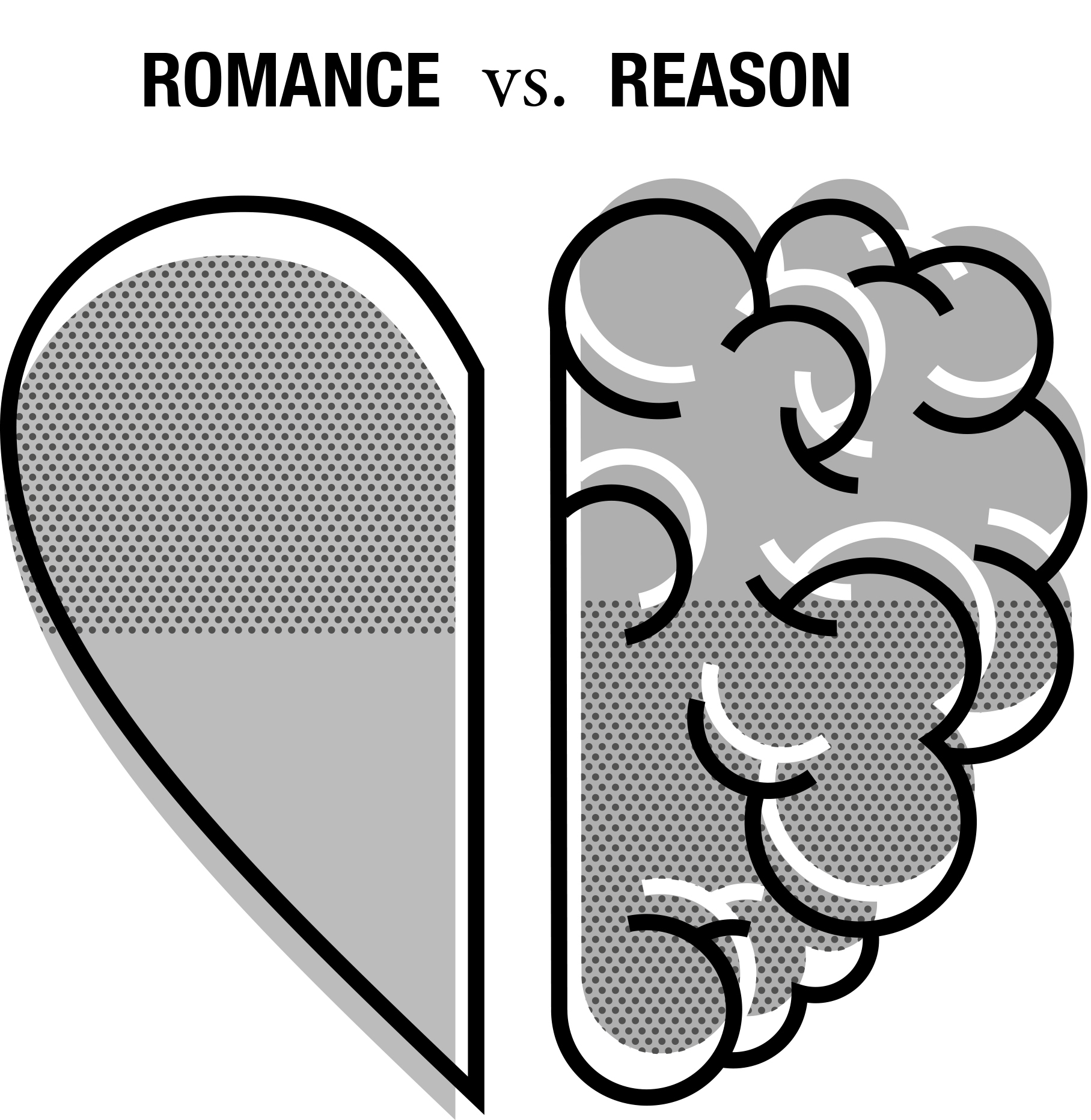It used to be one of my favorite sights to witness: an old couple happily strolling down a boulevard, holding hands, smiling at one another and enjoying each other’s company.
Not only would this kind of scene get a lengthy “aww” from me but it would also make me hopeful — hopeful that, damnit, someday that was going to be me and my soulmate.
Did I take into account how much of a rarity it was for me to spot one of these lucky life-long couples in public? Not at all.
Did I maybe consider that they hadn’t been married since they were in their mid-20’s and perhaps found each other much later in life? You kidding? No. That would have burst my romantic bubble at the time, the one that encouraged me to never ever stop looking for — wait for it — true love.
To say the least, I’ve dated a lot throughout college — some might call me a “serial dater,” while my friends plainly and lovingly regard me as being a “ho” — ouch.
I’ve been accused of going on dates for the free food, interesting company or for the sex. Yet to be completely honest, I was dating so frequently in hopes of finding “the one,” the free food was just a plus.
However, I’ve come to realize that Romanticism — which includes the belief in finding the perfect partner — was causing disaster in my love life.
Although I don’t believe in the idea of “true love” any longer, according to a survey conducted by Ralph Lauren and Glamour Magazine titled, “A survey on Modern Romance,” 9 out of 10 men and women aged 18 and over believe there is one soulmate they’re destined to be with in life and will someday find.
One might assume I stopped believing in the idea of a soulmate due to so many failed relationships or because I came to the startling realization that I am a strong, independent college student who “don’t need no man.” However, that’s far from the truth.
For those unaware, Romanticism is an ideology created by poets, artists and philosophers in the mid-18th century, one that website WiseGeek defines as a movement which “emphasized the importance of emotion, sensitivity, passion, imagination and intuition over reason.”
From Romanticism dawned the idea of the one true love — the kind of ideal partner who not only provides you with unconditional love and affection, but also completely accepts you for who you are, provides you with a passionate sex life, relates with you on nearly everything, completely ends your days of loneliness and gives you a life-long marriage.
Seems far-fetched, doesn’t it? No? Well, consider this — the romantic ideology is one that places feelings over logic. For instance, romanticism holds true love to be interchangeable with accepting everything about one’s partner.
The idea that your partner or you may need to “change” becomes a sign that the relationship is shortcoming and is bound to end fairly soon.
A state of mind influenced by this sort of ideology is guided by feelings — no matter how muddled — over practical considerations, which is rather lamentable.
I can vouch for this. In one of my past relationships, I became so disillusioned with how little my ex and I had in common — whether it was something as simple as our taste in music or as overblown as marriage — that I ended up leaving him.
Looking back, I’d consider the guy to be an altruistic, kind-hearted person that any non-romantic would be lucky to have as a partner.
Did I see that then? No. As soon as he mentioned he didn’t want to get married and start a family someday, he burst that “romantic bubble” I mentioned earlier.
Now some may correlate looking for true love to an ambitious search for the ideal partner — where giving up on that search would mean settling for less, and God forbid that, right?
I believe it’s not so much a matter of settling for less, but rather embracing a psychologically mature understanding of “true love.”
Don’t expect to find everything in a single person. I remember I was once looking for not only a boyfriend, but a best friend, gym partner, study buddy, math tutor, drinking pal and personal financier all-in-one.
I can tell you now, you most likely won’t find this super-human so neither look for them nor pressure your partner to be them.
It isn’t because they’re a terrible non-Hallmark channel kind of partner, but because they’re only human.
And finally, when it comes to marriage — “till death do us part” is the goal but “‘till we fall out of love” seems more human.
So, next time you see some old-timers in love, keep in mind that if they have spent their lives together it wasn’t because they were perfectly flawless but rather flawed in perfect harmony.




